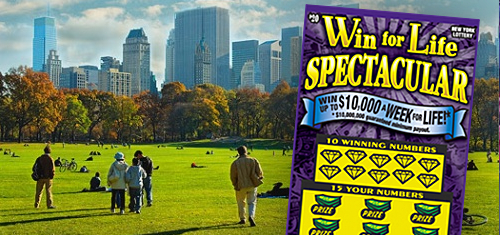 Unexpected positive outcomes increase a person’s willingness to take gambling risks, according to a new study.
Unexpected positive outcomes increase a person’s willingness to take gambling risks, according to a new study.
Research shown that being in a good mood causes people to take riskier bets, but a new study has drawn a direct line between the arrival of an unforeseen positive event and increases in people’s willingness to take a chance on winning a prize.
New York University researcher Ross Otto led a study recently published in the journal Psychological Science that identified a direct link between increased lottery sales and the unexpected arrival of a sunny day or a surprise win by a local sports team.
In order to factor out the influence of occasional mad jackpot rushes – such as this month’s Powerball frenzy – the study used statistics of non-jackpot lottery sales (like instant-win scratch tickets) in New York City covering the years 2011 and 2012,
The researchers compared these sales figures with solar irradiance data showing the amount of sunshine on each day during the same period. The researchers also compared lottery sales to the wins and losses of all New York pro sports franchises.
For the weather comparison, the researchers determined whether the previous day’s forecast matched the actual day’s weather. For the sports data, the researchers compared whether a win was expected against the actual outcome. In both cases, the researchers allowed for variables such as holidays, normal paycheck cycles and extreme weather events.
The researchers found that the more unexpected a sports team’s victory, lottery sales went up the following day. Similarly, the greater the surprise that the sun was shining, the more lottery sales would rise on that day.
The researchers said these unexpectedly positive results had the effect of boosting lottery sales as much as 0.5%, which doesn’t sound like much, until you realize that this figure translates into an extra $160k in lottery sales in a market the size of New York.
The researchers noted that the effect on sales was similar across the city, regardless of a neighborhood’s economic ranking. Otto said the study revealed “a remarkable malleability to human risk taking; people’s gambling behavior is shaped by unexpected but incidental outcomes in their environment.”
